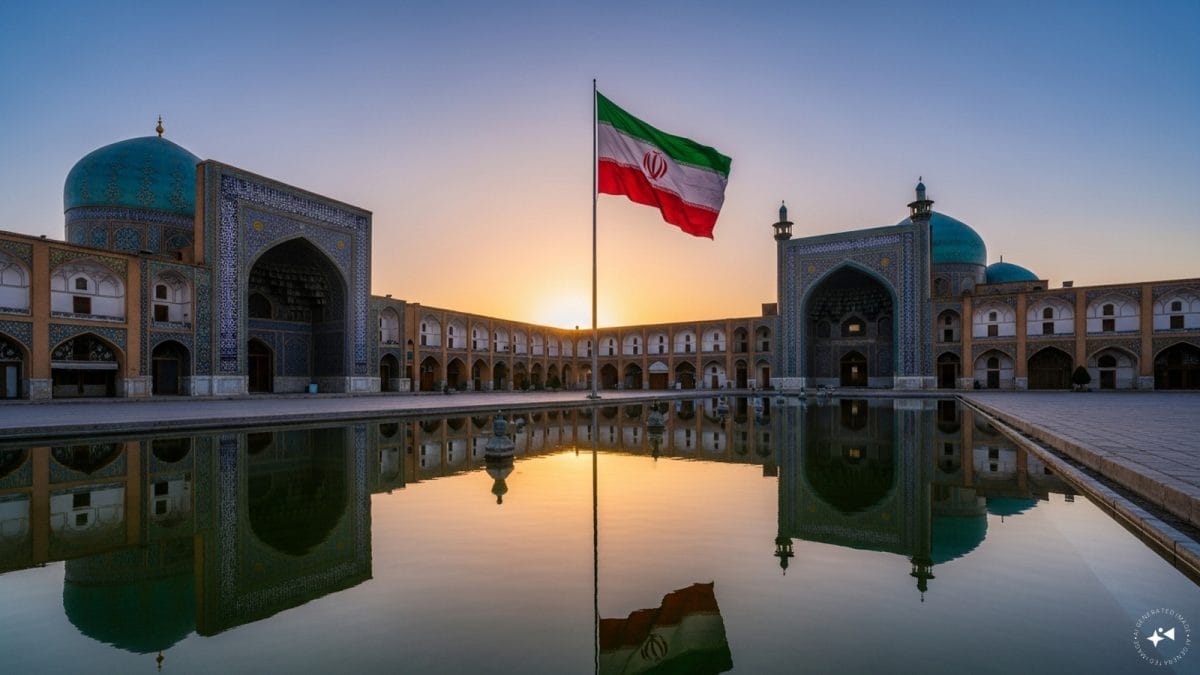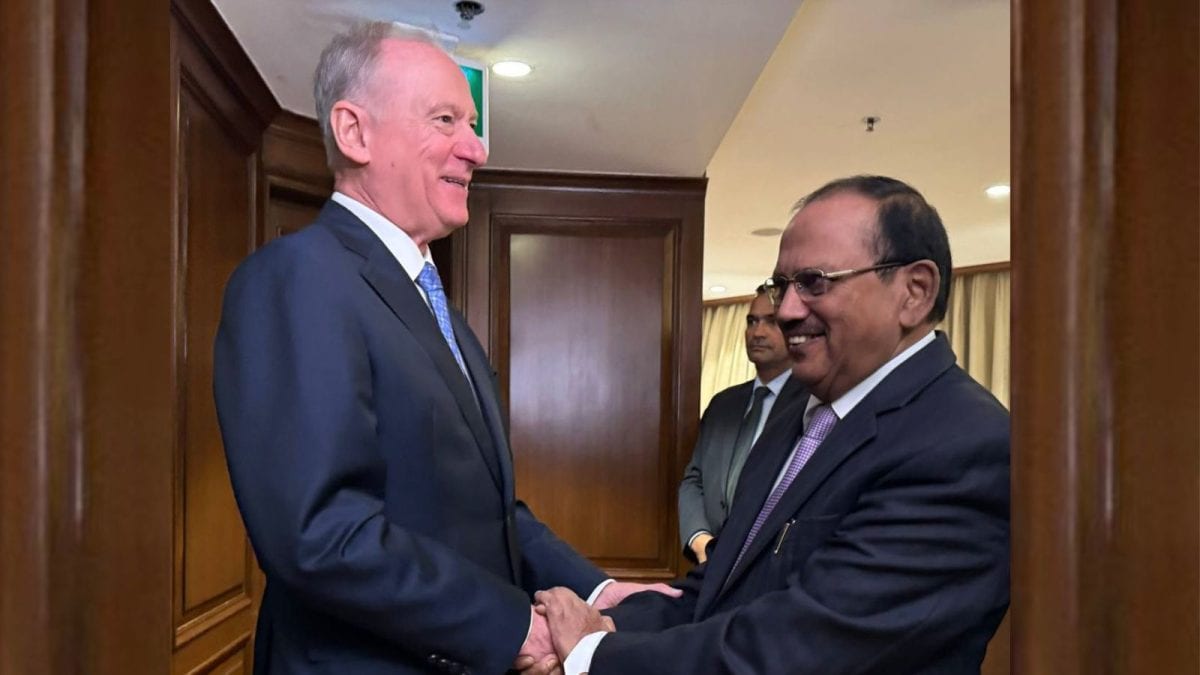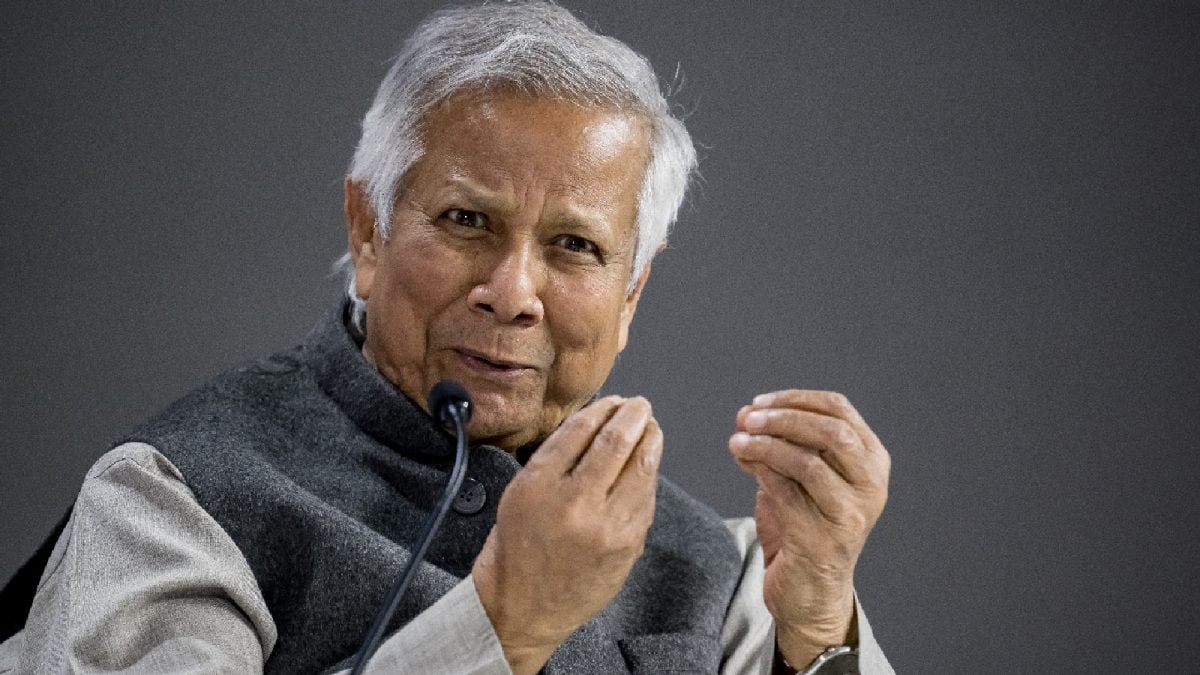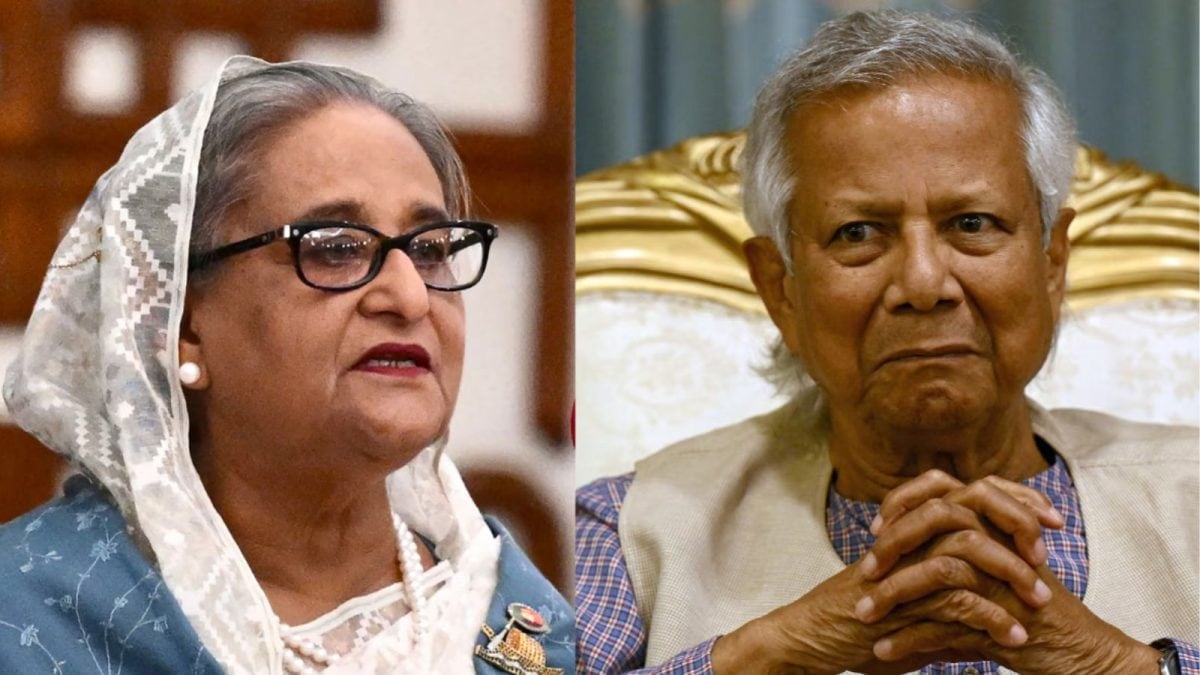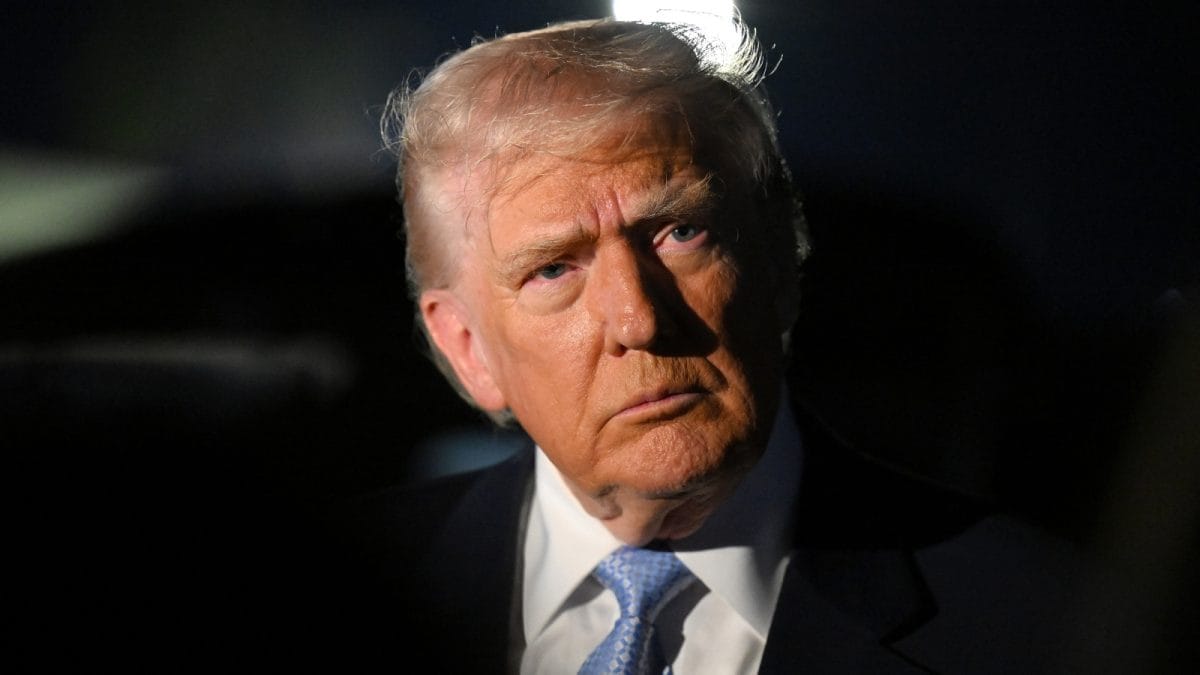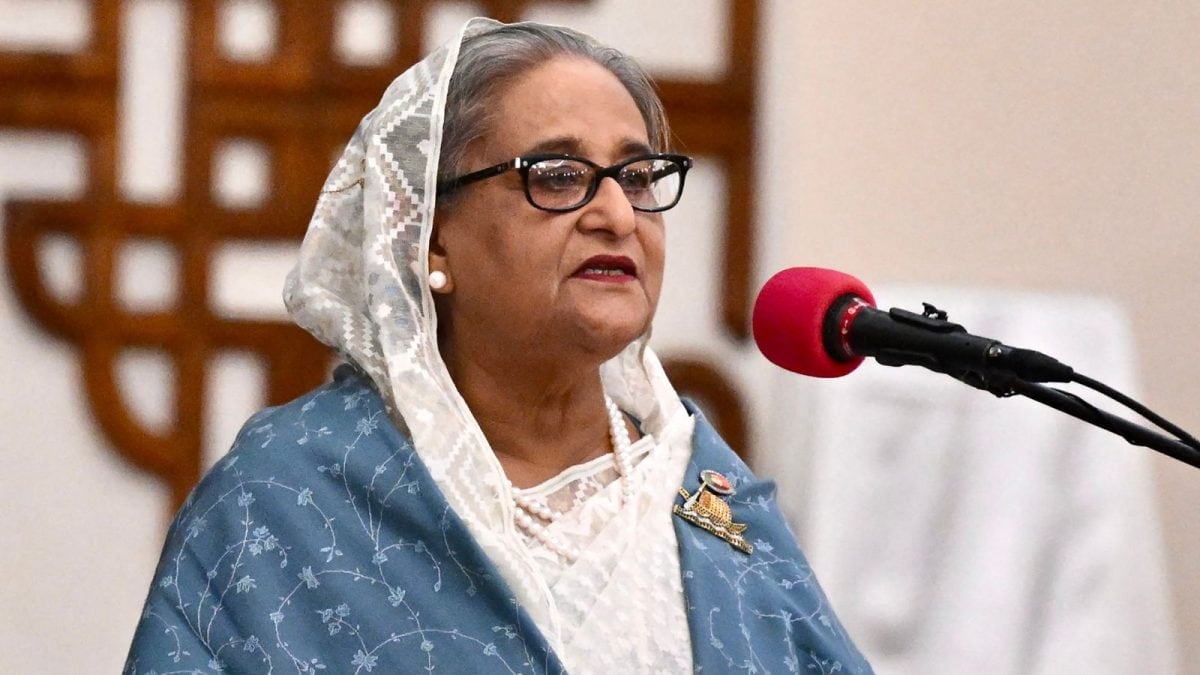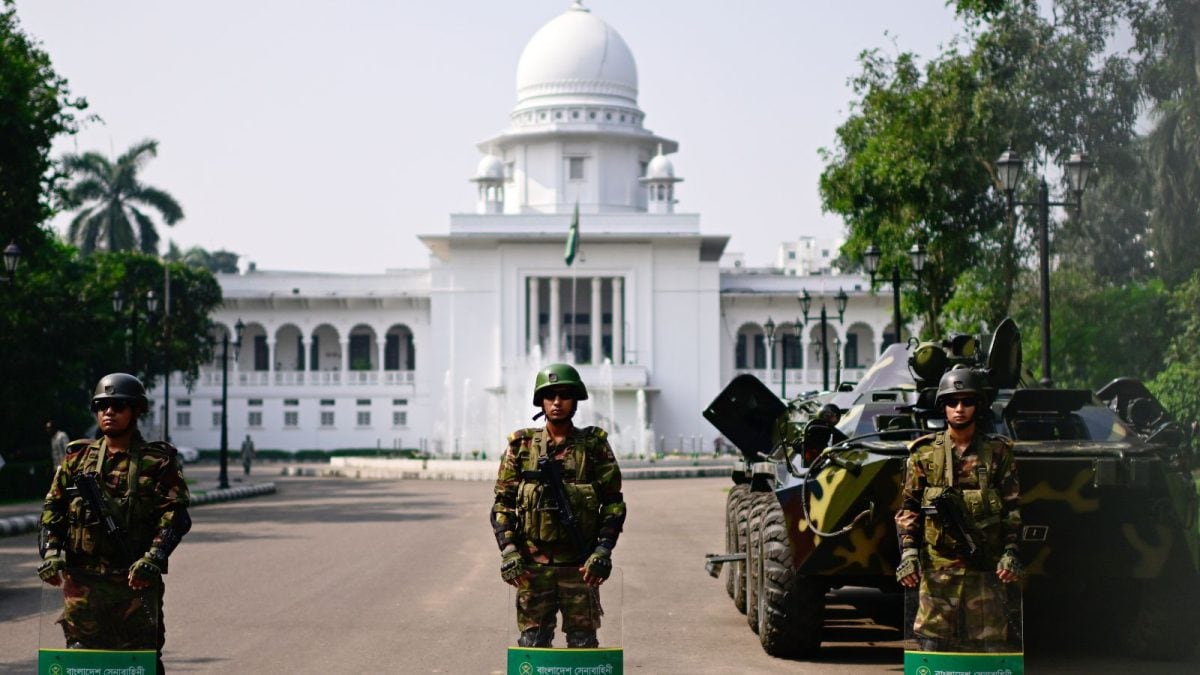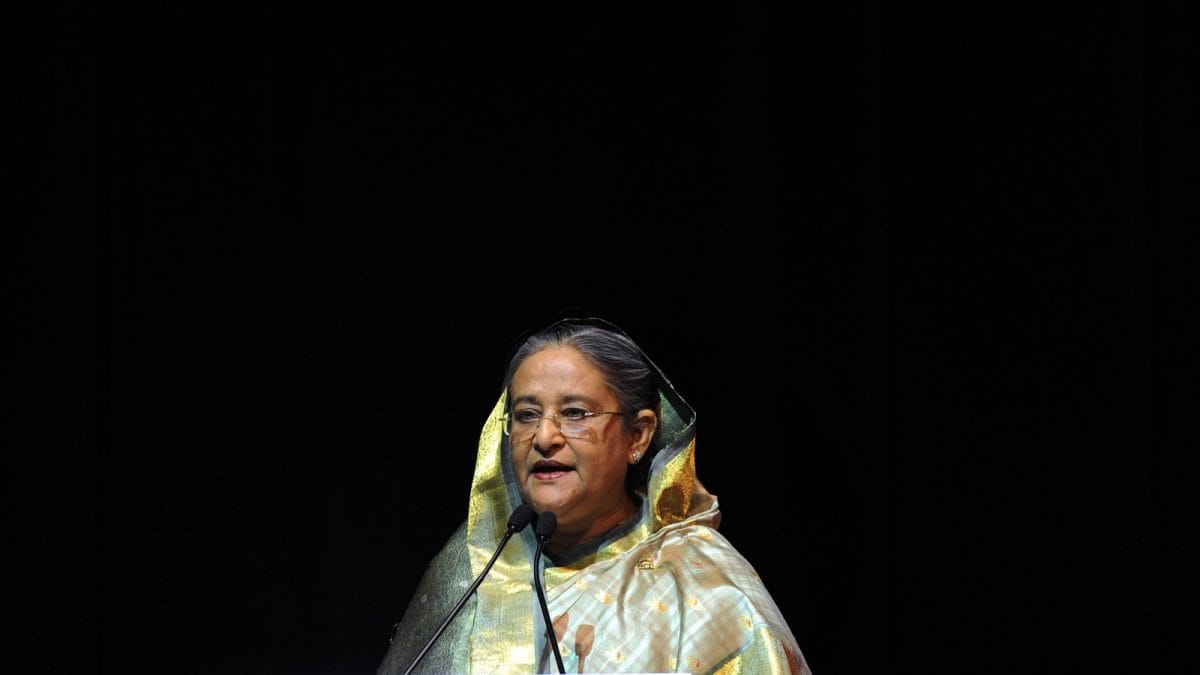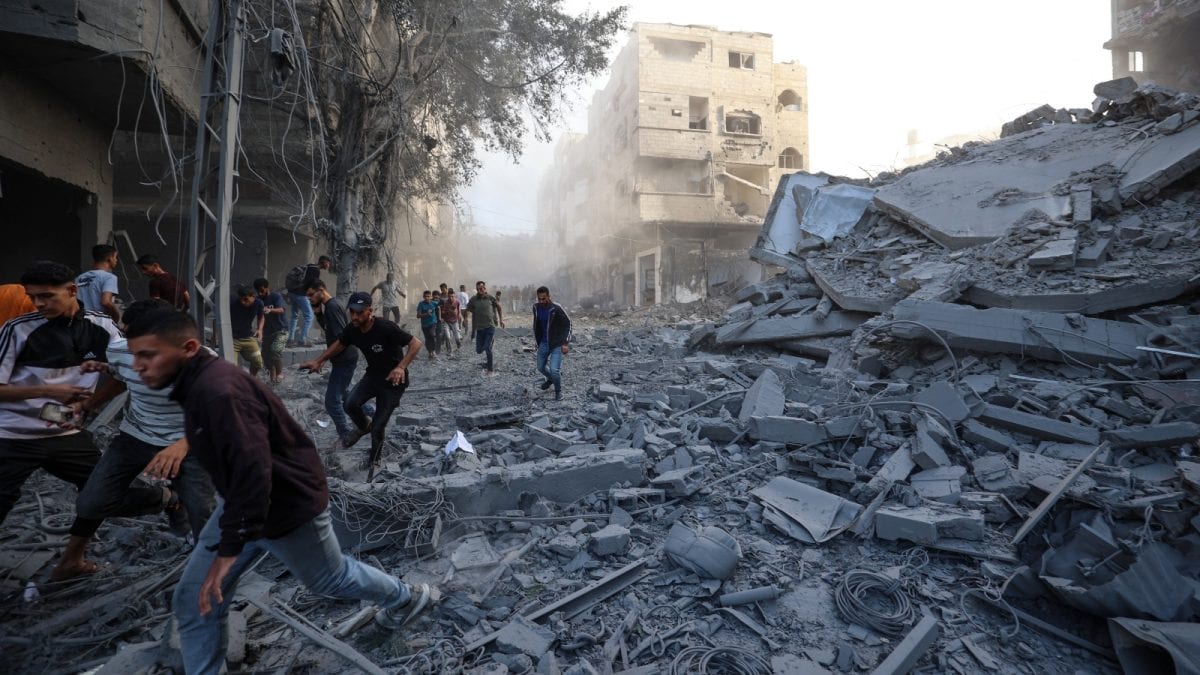Last Updated:November 17, 2025, 19:54 IST
In a cruel twist of fate, Sheikh Hasina now stands convicted of what her family once fought while she watches the verdict unfold from exile in neighbouring India

In a picture from January 8, 2024, in Dhaka, Bangladesh PM Sheikh Hasina accepts greetings from the assembled media and election observers while addressing a press conference, a day after she won the 12th parliamentary elections. (Image: INDRANIL MUKHERJEE/AFP)
A key figure in South Asia, who dominated the political landscape of her country for half a century, ousted Bangladesh prime minister Sheikh Hasina had her dramatic downfall sealed on Monday when she was sentenced to be hanged till death for “crimes against humanity".
In a cruel twist of fate, Sheikh Hasina now stands convicted of what her family once fought while she watches the verdict unfold from exile in neighbouring India.
Once lauded globally for engineering Bangladesh’s rapid economic ascent, Hasina has seen it all. She survived the 1975 military coup, in which her father, mother, three brothers, and several other family members were assassinated, only because she was abroad.
Hasina was subsequently granted asylum in India under then prime minister Indira Gandhi but she returned to Bangladesh to lead the Awami League in May 1981 after six years in exile. Decades later, however, as angry crowds stormed her palace in August 2024, she fled once again by helicopter to India, where she has remained in hiding ever since.
But in what can be called a cruel twist of fate, her sentence was handed down by the Crimes Tribunal (ICT) – a product rooted in her revolutionary father, Sheikh Mujibur Rahman’s effort to bring to justice those who committed atrocities in the 1971 Bangladesh Liberation War.
The court, formed under the Sheikh Hasina government in 2009, is authorised by the Crimes (Tribunals) Act, 1973. A significant piece of domestic legislation, it was enacted immediately following independence to authorise the investigation and prosecution of individuals for atrocities committed during the 1971 war, including genocide and crimes against humanity.
The Act was passed in July 1973 by the new government of Bangladesh, which was led by Sheikh Mujibur Rahman, the country’s founding father. The ICT – once used to try war criminals – was reconstituted by the Muhammad Yunus-led interim government after Hasina’s ouster so as to bring charges against her related to the 2024 anti-government protests.
BORN TO LEAD
Hasina was born in 1947 in not just any ordinary household. Her life, since her birth, was fundamentally linked to Bangladesh’s struggle for independence that was led by her father, Sheikh Mujibur Rahman.
After earning a master’s degree in Bengali literature from Dhaka University in 1973, she gained political experience as a go-between for her father and his student followers. But the 1975 assassination of her family thrust her into prominence and solidified her political destiny.
After returning from exile in 1981, she was elected in absentia as the general secretary of the Awami League, which is Bangladesh’s oldest political party.
THE ‘BATTLING BEGUMS’
Initially, Hasina briefly allied with Khaleda Zia’s Bangladesh ist Party (BNP) to lead a popular uprising that successfully toppled military ruler Hussain Muhammad Ershad in 1990.
But this alliance did not work out due to bitter ideological differences and electoral conflict. The rivalry between her and Khaleda Zia – dubbed the “battling begums" – went on to define Bangladeshi politics for over three decades.
Hasina first became prime minister in 1996, serving a five-year term, but lost to Zia in 2001. She, however, regained power with a landslide victory in 2008, beginning a period of dominance that eventually became a source of criticism, with many calling it authoritarianism.
Under her leadership, however, the Awami League swept three consecutive elections in 2008, 2014 – boycotted by Zia’s BNP – and 2018. This made her one of the world’s longest serving female heads of a government.
(With agency inputs)
The News Desk is a team of passionate editors and writers who break and analyse the most important events unfolding in India and abroad. From live updates to exclusive reports to in-depth explainers, the Desk d...Read More
The News Desk is a team of passionate editors and writers who break and analyse the most important events unfolding in India and abroad. From live updates to exclusive reports to in-depth explainers, the Desk d...
Read More
Location :
Dhaka, Bangladesh
First Published:
November 17, 2025, 19:53 IST
News world Sheikh Hasina's Fall: How Bangladesh's 'Iron Lady' Went From PM To Death Row Convict
Disclaimer: Comments reflect users’ views, not News18’s. Please keep discussions respectful and constructive. Abusive, defamatory, or illegal comments will be removed. News18 may disable any comment at its discretion. By posting, you agree to our Terms of Use and Privacy Policy.
Read More

 2 hours ago
2 hours ago
